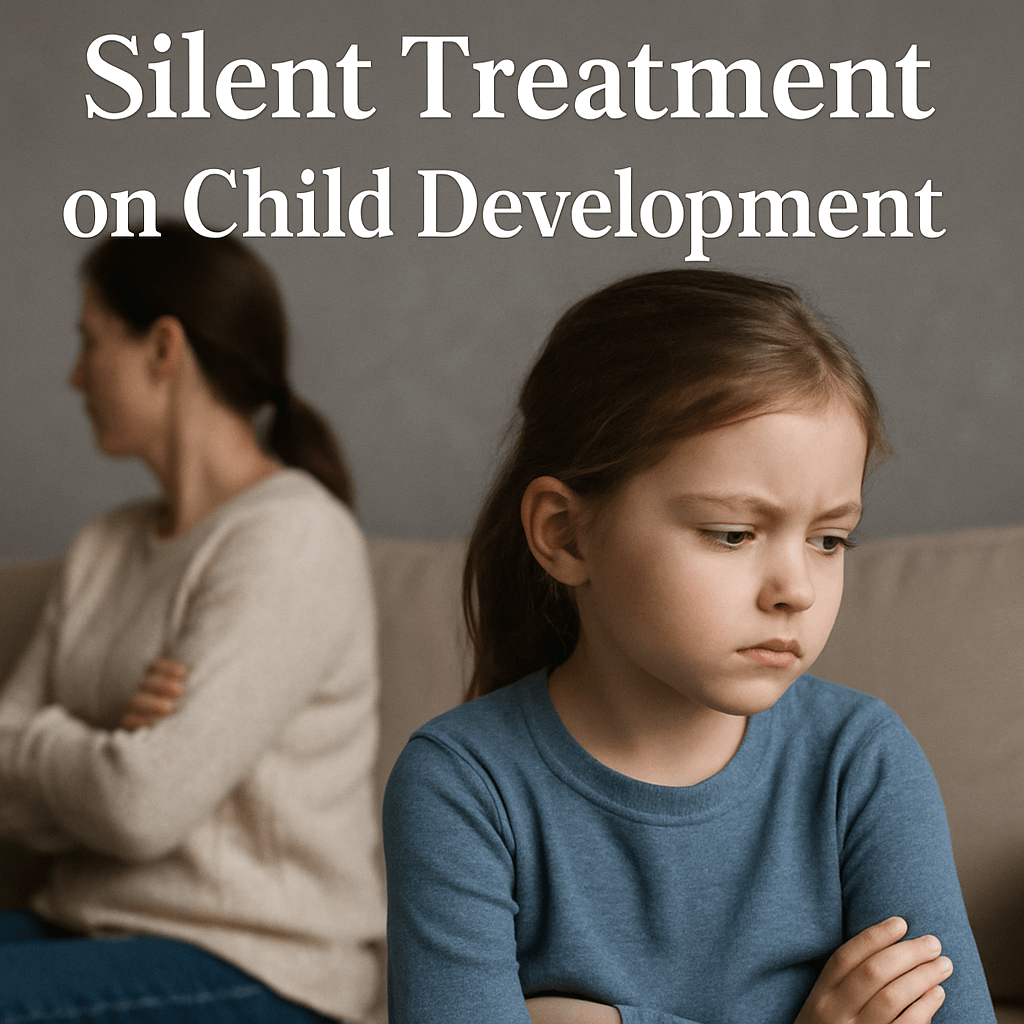The Effects of Silent Treatment on Child Development

Silence, often prized as a form of serenity, takes a sharp turn when wielded as a punishment in parent-child dynamics. Experts in psychology and child development caution that using silence as a punitive measure can have detrimental effects on children’s emotional and behavioral growth.
The Psychological Viewpoint on Silence as Punishment
Kier Gaines, a licensed therapist and parenting influencer, articulates that silence should never serve as a tool for punishment or emotional distancing. When silence is intended to convey disapproval or shame, it can severely disrupt a child’s self-worth and emotional regulation.
Psychologist Barbara Greenberg adds another layer to this argument, explaining that the silent treatment effectively communicates to a child a sense of rejection. “It signals that the parent finds the child unworthy of communication, which inadvertently instills feelings of shame and isolation,” she states. Such emotional responses can be long-lasting, potentially affecting a child’s future interpersonal relationships.
Communication is Key: Why Silence Fails
Gaines emphasizes the misconception that children will intuitively grasp the reason behind their parent’s silence. In reality, children are often left confused, attempting to navigate their parent’s behavior without guidance. “Children lack the cognitive maturity to make sense of these dynamics, leading to misunderstandings that further complicate their emotional landscape,” he explains.
Furthermore, adolescents may exhibit behaviors like anger or withdrawal, not out of defiance, but from a desperate need for connection. When parents respond with silence, it only exacerbates their longing for reassurance.
Understanding Children’s Behavior through Communication
Effective communication fosters a supportive environment that encourages emotional growth. Greenberg asserts that offering children the opportunity to articulate their thoughts and feelings can significantly mitigate conflicts. “An open dialogue allows for reflection not only from the parent but also from the child. Immediate consequences without dialogue can leave both parties unprepared to handle similar situations in the future,” she argues.
The Long-Term Consequences of the Silent Treatment
One of the significant issues with using silence as punishment is the long-term behavioral model it establishes in children. Greenberg warns that this approach teaches children to avoid conflicts rather than confront them. “As they grow, they may default to silence in their relationships, which can lead to a cycle of unresolved conflicts and accumulated resentments,” she explains.
This trend could result in a generation of adults ill-equipped to express their needs and emotions effectively. Gaines highlights the psychological toll of such maladaptive coping mechanisms, suggesting that individuals may struggle to engage in healthy emotional communication as they mature.
Recognizing the Acceptable Use of Silence
While silence as punishment is damaging, there are circumstances where a temporary withdrawal may serve a constructive purpose. Gaines notes, “Taking time to gather one’s thoughts can be beneficial, especially in emotionally charged situations. Acknowledging your need for space communicates to your child that it’s okay to step back when feeling overwhelmed.” He emphasizes the importance of clarity in these moments, adding that parents should explain their need for reflection to avoid alienating their children further.
Strategies for Healthy Emotional Processing
Instead of resorting to silence, parents should embrace vulnerability by sharing their feelings and frustrations with their children. Gaines suggests saying something like, “When you acted that way, it hurt my feelings. Let’s talk about it after I process my thoughts.” This not only demonstrates healthy emotional expression but also involves children in the conversation, alleviating potential guilt they might feel.
Conclusion: Emphasizing Communication Over Punishment
The evidence is compelling: open communication ultimately fosters emotional intelligence and resilience in children. Greenberg encapsulates the message succinctly: “If you wish to teach your child meaningful lessons, engage in dialogue. Punishment through silence only perpetuates confusion and emotional distress.” Encouraging children to articulate their feelings, while modeling appropriate emotional responses, lays the groundwork for healthier relationships in the future.
Further Reading
- Modern Parenting: New Challenges in Child Development
- The Role of Emotional Intelligence in Child Development
- Strategies for Open Communication with Children
For those looking to further explore effective parenting strategies, engaging with resources that emphasize emotional awareness and communication is invaluable.